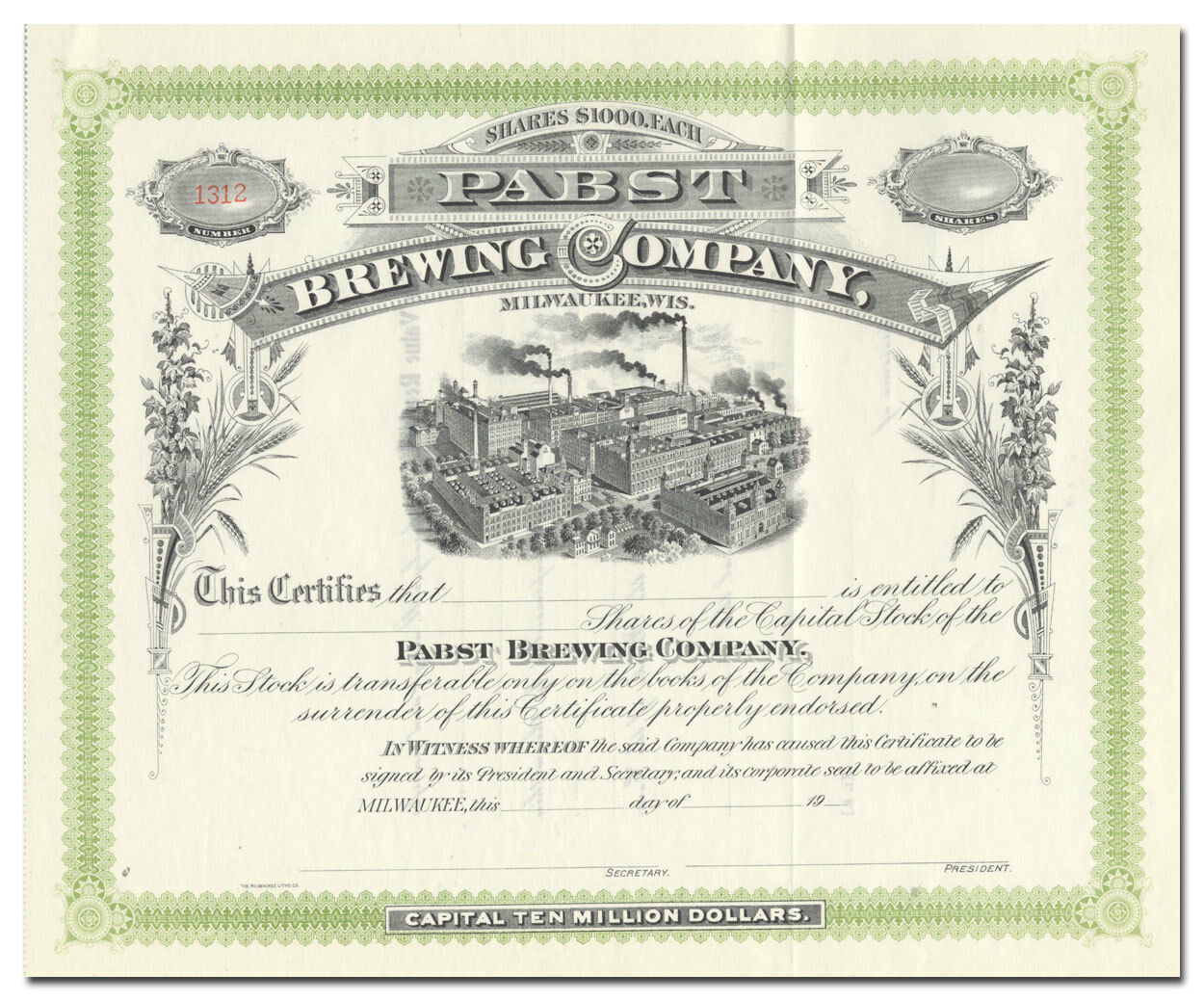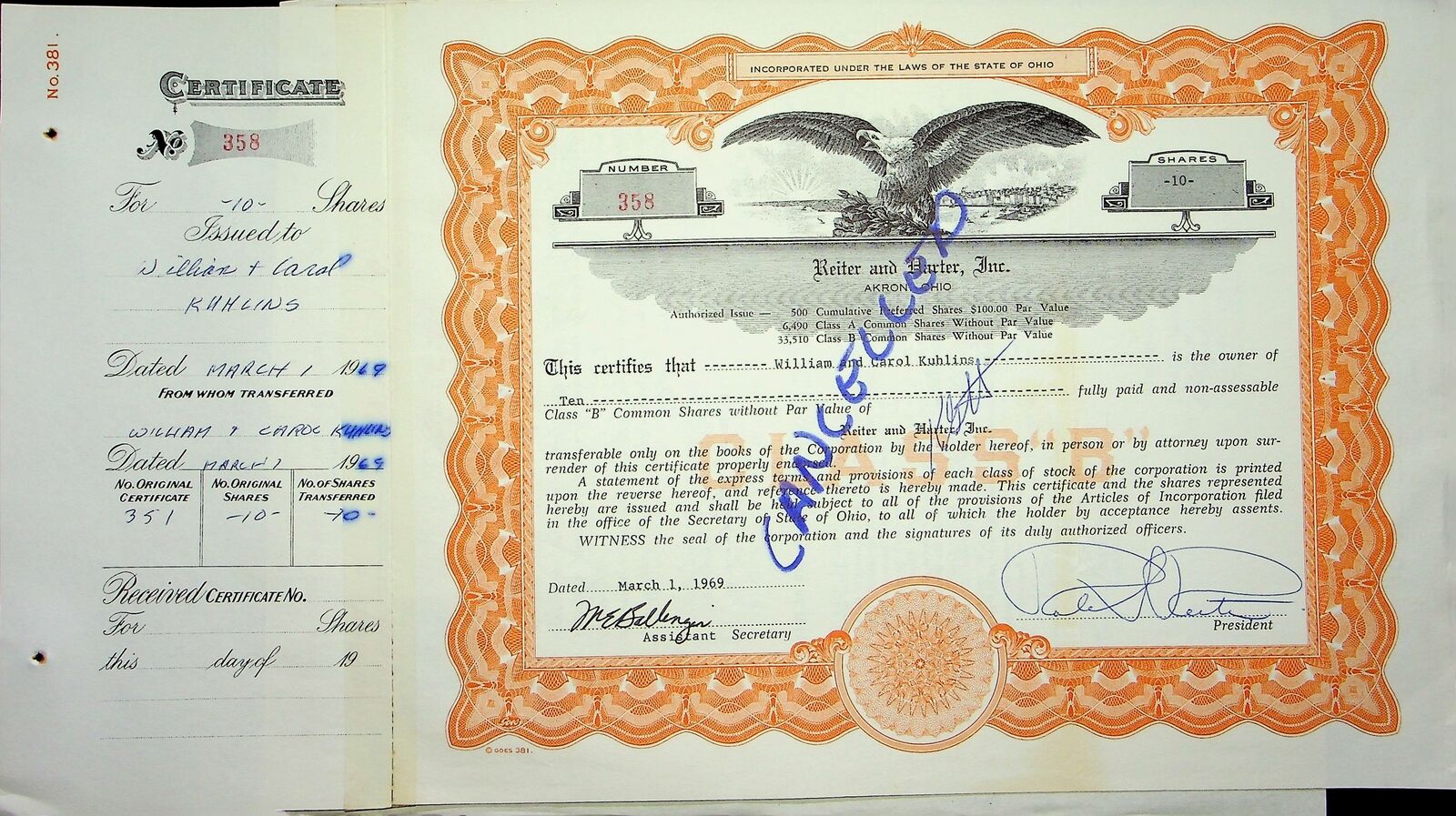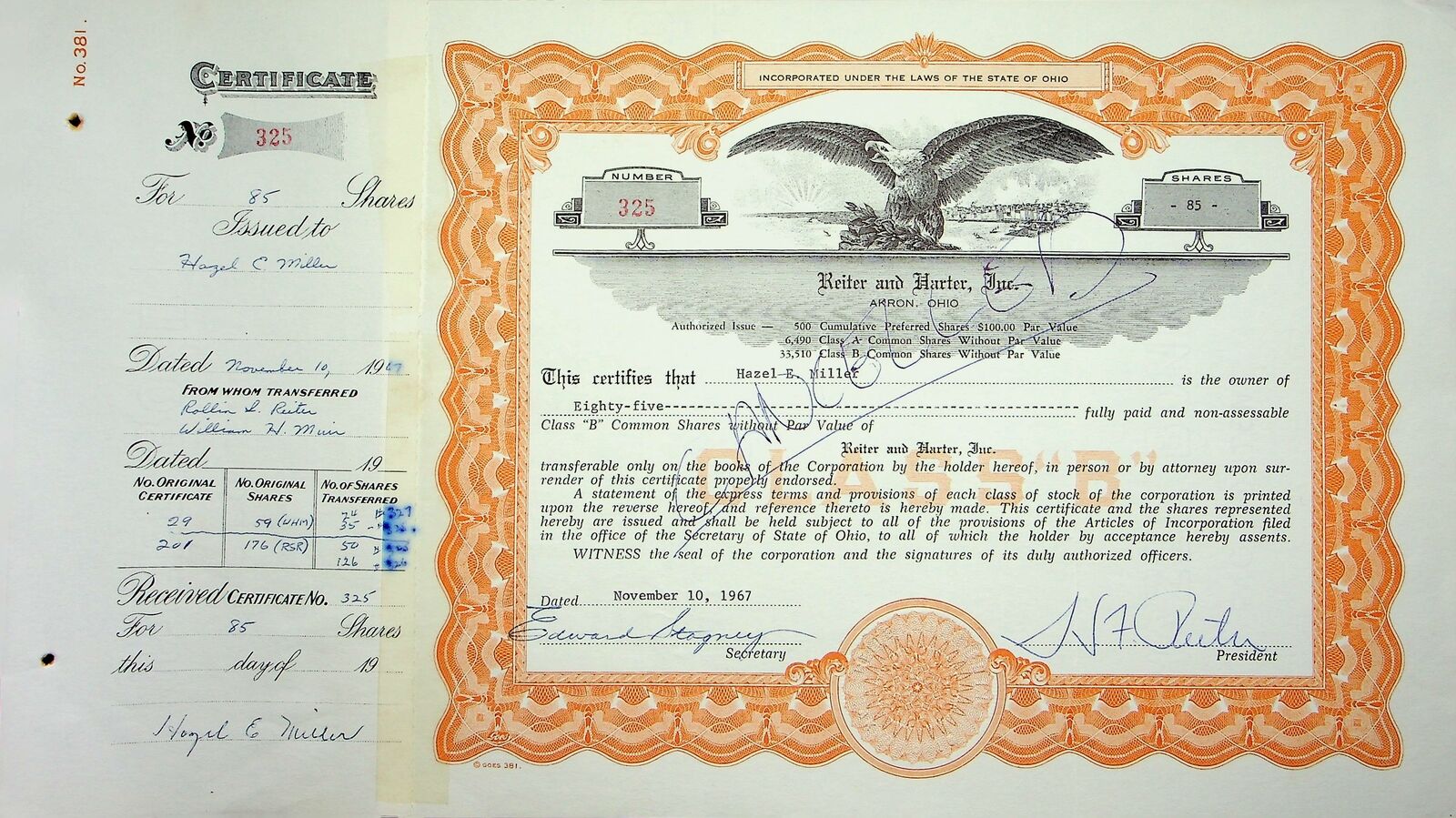-40%
Pabst Brewing Company Stock Certificate
$ 15.83
- Description
- Size Guide
Description
Product DetailsBeautifully engraved antique stock certificate from the Pabst Brewing Company dating back to the early 1900's. This document was printed by the Milwaukee Litho Company and measures approximately 11 1/2" (w) by 10 1/2" (h).
This piece features a great vignette of a Pabst brewery.
Images
The images presented are representative of the piece(s) you will receive. When representative images are presented for one of our offerings, you will receive a certificate in similar condition as the one pictured; however dating, denomination, certificate number and issuance details may vary.
Historical Context
The original brewery was founded in 1844 as The Empire Brewery, later Best and Company, by brewer Jacob Best. The brewery was run by Jacob Sr. and his sons Phillip, Charles, Jacob Jr., and Lorenz. Phillip took control of the company in 1860. They started the brewery on Chestnut Street Hill in Milwaukee with a capacity of 18 barrels. Later, in 1863, Frederick Pabst, a steamship captain and son-in-law of Phillip Best, bought 50% of Phillip Best Brewing, and assumed the role of vice president. In 1866, Best's other daughter, Lisette, married Emil Schandein, to whom Best sold the remaining half of the business. This move made Frederick Pabst president, and Lisette's husband vice-president. Lisette Schandein took over as vice-president of the company through 1894 after her husband's death.
By 1874 Phillip Best Brewing Co. was the nation's largest brewer. The brewery's best seller was a lager, Best Select, which began public sales in 1875.
During much of the 20th century, Pabst was run by Harris Perlstein, who was named president by Frederick Pabst in 1932 after a merger of Pabst Brewing and Premier Malt Products Co. (the latter of which Perlstein had been president). Perlstein emphasized research and innovation; under his direction, Pabst worked with American Can Company to produce the first beer cans, worked to create product consistency among multiple location breweries, and invested heavily in advertising and promotion. In 1954, Perlstein was named Chairman, and served until 1972; he then served as Chairman of the Executive Committee until his retirement in 1979. Pabst's sales reached a peak of 15.6 million barrels in 1978 before they entered into a steep decline.
During Prohibition, Pabst stopped making beer and switched to cheese production, selling more than 8 million pounds of Pabst-ett Cheese. When Prohibition ended, the company went back to selling beer, and the cheese line was sold to Kraft.
Pabst was renowned in Milwaukee for its brewery tours. Visitors to Pabst's tour were rewarded with sometimes bottomless glasses of beer at its end-of-tour Sternewirt Pub. Complete with a statue of Captain Frederick Pabst and waitresses pouring from pitchers of Pabst Blue Ribbon, Pabst Bock, and Andeker, the pub was popular with tourists and locals alike, especially students from nearby Marquette University and the University of Wisconsin–Milwaukee.
Paul Kalmanovitz, a self-made beer and real-estate baron, purchased the Pabst Brewing company in 1985 for million in a hostile takeover through the auspices of his holding company S&P Co.










